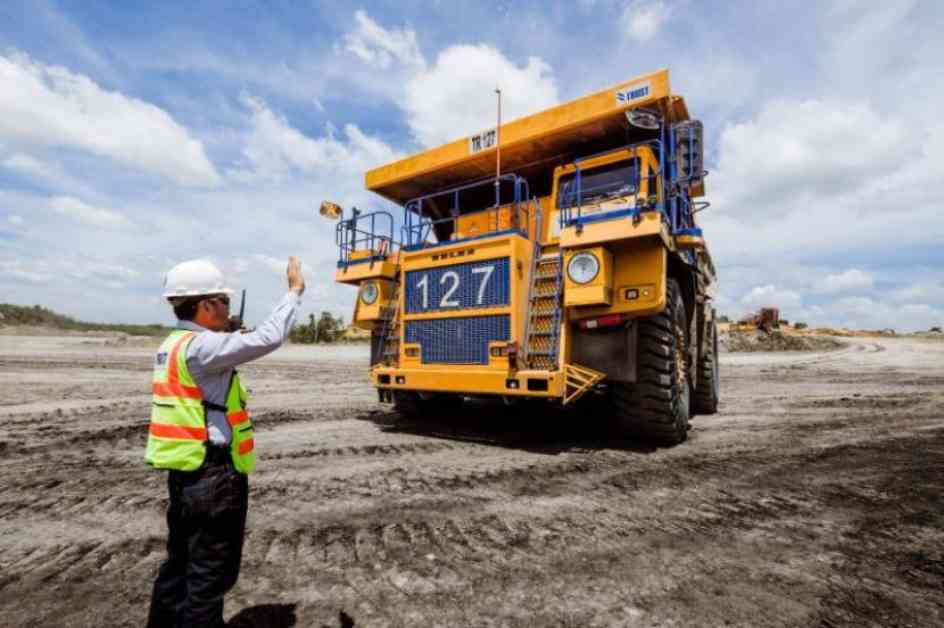The Indonesian government’s initiative to maximize economic growth through extensive commercialization, focusing on coal mineral value-added production, has been heralded as a significant step towards strengthening the national economy. By reducing the export of raw materials and promoting domestic processing into intermediate and end products, Indonesia aims to enhance its economic resilience and reduce dependency on raw mineral exports. Toto Pranoto, a State-Owned Enterprises (BUMN) observer from the University of Indonesia, commended the government’s robust economic performance strategy, particularly its emphasis on commercialization. This program is directly linked to the Mining Industry Holding Indonesia (MIND ID), aiming to boost the national economy through massive commercialization, especially by increasing domestic processing. “Extensive commercialization will enhance the added value to the national economy, particularly through further processing domestically. This will reduce our reliance on mineral raw material exports, which have been the main focus,” Toto stated in Jakarta.
The positive impact of this commercialization program on job creation in local communities cannot be overstated. With the construction of processing facilities and supporting infrastructure, new job opportunities will arise, fueling significant economic growth in the region. “The increase in job creation, especially in areas central to commercialization industries, is expected to lead to higher national economic growth,” Toto emphasized. He urged the government to prioritize Indonesia’s coal mineral reserves for the long-term sustainability of the commercialization program. Additionally, the government must ensure the absorption of coal mineral commercialization products for further processing in the manufacturing sector to guarantee the achievement of added value until the final consumer product. “Commercialization involves critical aspects both upstream and downstream. Upstream, we must ensure a stable supply of raw materials for the commercialization process to proceed smoothly. Downstream, we must ensure that the commercialization products reach the end consumers effectively,” he explained.
Collaborating with members of the holding, such as PT Aneka Tambang Tbk, PT Bukit Asam Tbk, PT Freeport Indonesia (PTFI), PT Indonesia Asahan Aluminium (Inalum), PT Timah Tbk, and PT Vale Indonesia Tbk, MIND ID remains committed to driving the commercialization of mining minerals in Indonesia. In 2024, several strategic projects were realized, including the inaugural injection of the Smelter Grade Alumina Refinery (SGAR), acting as a vital link for aluminum commercialization from upstream to downstream in Indonesia. MIND ID, through PTFI, has constructed a copper smelter in Gresik, which stands as one of the largest single-line smelters globally. The facility has a processing capacity of 1.7 million tons per year, showcasing Indonesia’s dedication to advancing its commercialization efforts in the mining sector.
Expert Insights: The Future of Economic Growth
In a rapidly evolving economic landscape, the emphasis on extensive commercialization as a driver of economic growth holds immense promise for Indonesia’s future. By capitalizing on the value-added potential of coal minerals through robust commercialization strategies, the nation can position itself as a formidable player in the global market. Expert analysts predict that a sustained focus on commercialization will not only bolster Indonesia’s economic resilience but also pave the way for long-term sustainable growth. As the commercialization efforts continue to unfold, it is imperative for the government and industry stakeholders to collaborate effectively, ensuring the seamless implementation of commercialization projects and maximizing the economic benefits for the nation.
Local Impact: Empowering Communities Through Job Creation
At the heart of Indonesia’s commercialization initiatives lies the profound impact on local communities, particularly in regions designated as commercialization hubs. The creation of new job opportunities through the establishment of processing facilities and infrastructure development has not only stimulated economic growth but also empowered individuals with sustainable livelihoods. Witnessing firsthand the transformative effects of commercialization on local communities underscores the significance of these initiatives in fostering inclusive growth and prosperity. As commercialization projects continue to gain momentum, the ripple effects of economic empowerment and social development are poised to elevate Indonesia’s standing on the global stage.
These efforts mark a pivotal juncture in Indonesia’s economic trajectory, where strategic investments in commercialization are propelling the nation towards a future defined by innovation, sustainability, and economic prosperity. As Indonesia navigates the complexities of a rapidly changing global economy, the commitment to extensive commercialization stands as a beacon of hope, illuminating the path towards a more resilient and prosperous future for all Indonesians.














